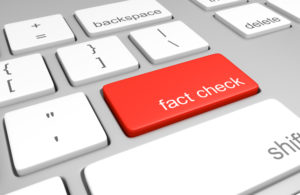
April 28, 2019
“Your opinions are your windows on the world. Scrub them off every once in a while, or the light won’t come in.” Unknown
Judging is an essential part of being human, although it has developed a bad rap. I often hear people express the idea that they don’t want to be, or worse, be perceived as, “judgmental.”
The bias against being judgmental may come from our tendency to confuse judgments with opinions, and then to confuse opinions with facts.
Judgment is the ability to make considered decisions or come to sensible conclusions.
Opinions are the result of observations and judgments. They are ideas that have emerged from our unique individual neurology, contextual history, and personal experience. Opinions are ideas, not facts.
When we treat our opinions like facts, we can end up living in a world that is very small. We surround ourselves with people who hold similar opinions. We end up reinforcing the idea that our opinions are better, more ‘right’, than the opinions of those outside of our group.
By confusing a simple difference of opinion with a fact, we end up unable to communicate, negotiate or effectively mediate our differences. We end up with world wars, religious divisiveness, political upheaval, and alienation within our own families.
Consider this: You and I could observe the exact same situation, make a judgment about it, and then each walk away with an entirely different opinion about what happened that bears no resemblance to what really happened.
Here’s an example of what I mean: A mother and her son are standing far enough away that I can’t hear them. Mother is talking, towering over the boy who is looking up at her.
If I was raised in a family with poor or non-existent communication skills, I might observe the interaction, make a judgment about whether or not to intervene based on an opinion that the mother was being abusive and the little boy was terrified.
On the other hand, if I was raised in a family that enjoyed lots of discussion and loving support, I might observe the interaction, make a judgment about whether or not to intervene based on an opinion that the mom was answering a question the little boy asked, and he was earnestly listening and assimilating her thoughtful answer.
In neither case did I have enough information to make a reasonable judgment, but I could easily have jumped to an uninformed opinion because of an inherent bias of which I might be completely unaware.
The problem isn’t that we judge too much. The problem is that we may at times jump to an opinion that hasn’t been judged thoroughly enough.
The capacity for sensible conclusions comes from accessing the frontal lobe, the executive function of our brains. When we don’t connect with that part of our brain first, we revert to reacting with our amygdala – the primitive part of our brain – and jump to a conclusion (opinion) that may be incomplete or the opposite of sensible.
We see being judgmental as a flaw, rather than an important function of our brains. Our brains have an innate capacity to observe, analyze, compare, contrast, and assess. That’s how we make decisions and productively move forward in our lives. That ability to observe and then make judgments allows us to achieve our goals.
We don’t need to worry about being too judgmental. It is what our brains do best. We need to become familiar with the difference between a judgment and an opinion. Then we can relate to our opinions for what they actually are. Ideas, not facts. Your opinions matter. That doesn’t make them facts.
Let’s stop worrying about being too judgmental and start wondering if we might be too opinionated.
Much love,

Great Seedlings!!! Your example makes it so easy to understand and gets to the point so well!!!
Thanks Bruce! Didn’t see this yesterday – sorry for the late response. Since I wrote this one I’ve been trying to pay attention to how often I make statements, inside my head or out loud, like they’re facts. It’s already more than i can count lol!!
Robyn, wow, echoes my own observations in life–about myself, as well as what I see in others (hmm, maybe that is one of my opinions?)
Vicki said after reading your entry, “That is the best one of Robyn’s ‘Seedlings,” I’ve read.”
I agree.
It is an excellent example of what you are writing about in this essay. Judgment, opinion, fact-the triumvirate of thoughtful thinking.
When are you going to publish your Seedlings wisdom?
Love, Dick
Thanks Dick! I laughed when you said “maybe that is one of my opinions?” I KNOW! we’re so opinionated and we don’t even know we’re just babbling much of the time. So now you’ve given me a great new tool. Every time I open my mouth I can say, “If this is just one of my opinions, I can offer it with a maybe, or an I wonder if, or possibly…” Thank you!
Thanks for the question about publishing a book — in fact I’m working with an editor, so we shall see what comes of it! xo
Robyn, We discussed this together, I think? Sometimes just listening and observing need no opinion at all. We can make judgments internally without always verbally giving our opinion. Some wise words to live by, thanks Robyn!
Yep. Great point! And often, when I keep my opinions to myself, they change as new information comes in. Then I’m not stuck having left someone with an opinion or an idea I no longer hold or believe.